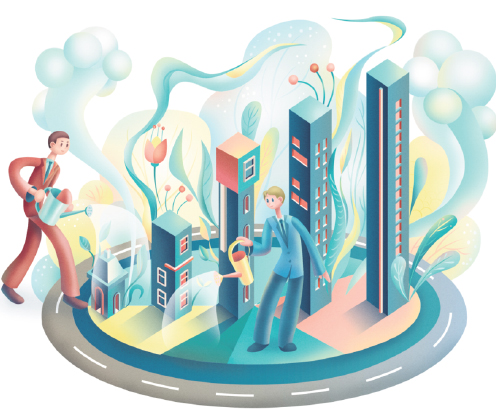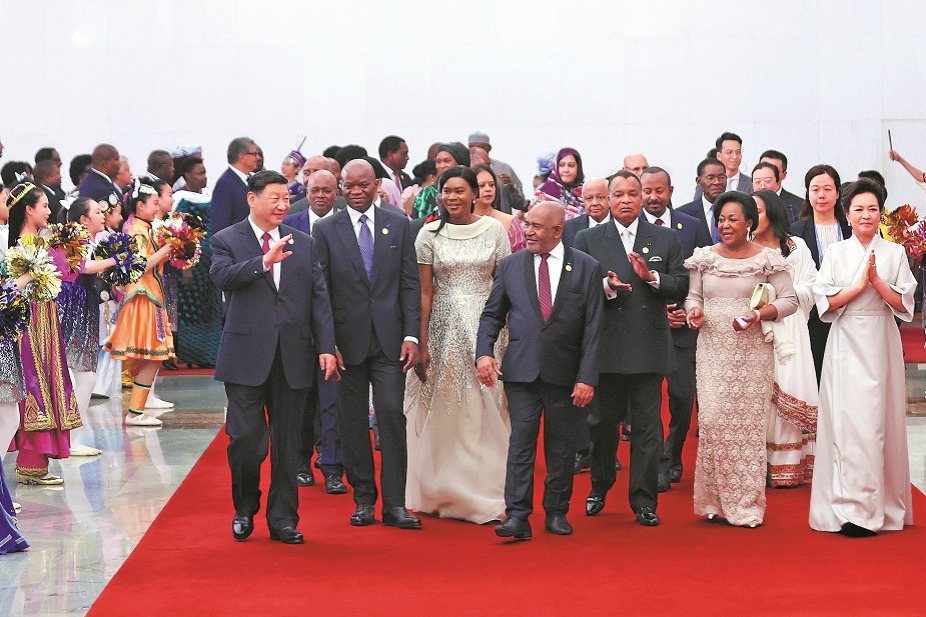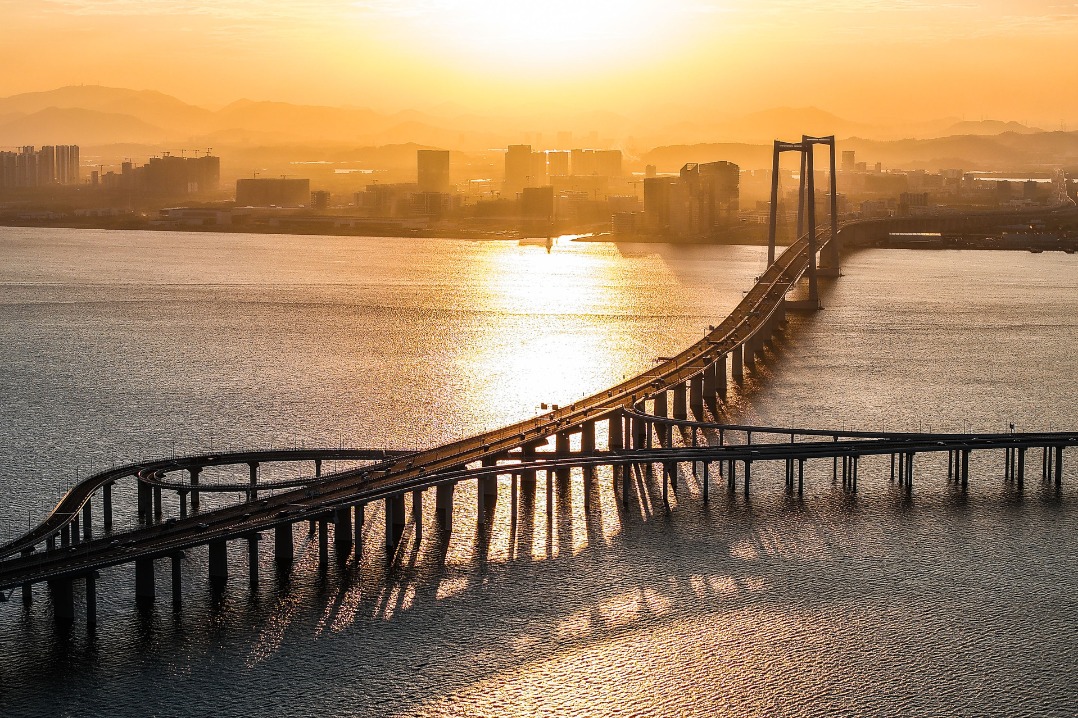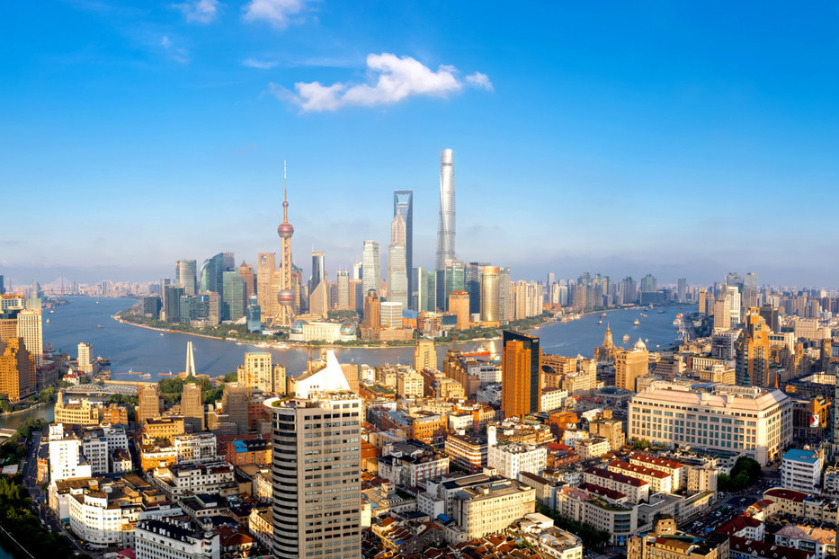Clean, compact, connected cities


China has a golden opportunity to recalibrate its urbanization agenda and lead the transition to a low-carbon economy
Urbanization and industrialization have been the central drivers of China's rapid economic growth in recent decades. China's phenomenal export-led growth performance over the past quarter of a century has been based on the development of coastal "hubs". This has led to a powerful internal movement of people and has added nearly 700 million into Chinese cities over the last four decades, which has not only changed the lives of individuals, but also transformed the whole country from a traditional agrarian society into a modern urban one. Urbanization has brought new jobs, enhanced livelihoods, enabled modern education and healthcare system, indeed a 21st century life for a majority of the population.
But the cities are now in trouble. They are facing environmental pollution, traffic congestion and shortages of supply in education, healthcare and social support, as more people are moving to the cities and the population is aging. Cities are also being impacted severely by climate change. And this year, cities have been reminded, intensely and clearly, by the sudden and severe pandemic of COVID-19 that density of population can spread disease very rapidly. Cities are looking for solutions to these challenges.
The old drivers of urbanization are losing momentum. China's urbanization has relied on expansion of existing cities and the development of new towns and new areas. Land acquisition/reclamation from farmers has been a major source of financing for urbanization. Industrialization was characterized by polluting, energy-intensive and high-carbon industries inflicting severe environmental damages on humans and other living organisms. And China is by far the largest emitter of greenhouse gases, although roughly one-quarter of the Chinese carbon emissions are from production of goods for international trade. Urbanization, industrialization and globalization, the three engines that have made China the second largest economy in the world, are all facing challenges. And now COVID-19 has dramatically demonstrated the dangers and fragility of the existing systems and highlighted the need to build a stronger, more sustainable and resilient economy in a changing world.
The search must be for new forces and development models profoundly different from those of the past. The future for China involves a transition from exports to domestic consumption, along with higher-tech, more service-orientation and a cleaner economy to accelerate the realization of an "eco-civilization". This whole process can be enhanced through a shift from the export-oriented mega "hubs" to smaller well-contained clean, compact and connected cities in the interior, a "rebalancing" that will generate investment and employment opportunities in both the short and long term. It will require investment in not only physical capital, but also in natural capital, human capital and social cohesion, particularly to ensure that health and education services are more evenly distributed across society and the country.
China has shifted its policy toward quality growth with an emphasis on environmental sustainability. China has begun to wage war on pollution of air, water and soil. There is a zero-waste campaign to tackle the problems of solid waste. These environmental campaigns, with new legislation and enforcement, have won enormous support from the public who are fed up with pollution. The measures to reduce airborne particulates have also reduced the emissions of carbon dioxide from replacement of fossil fuel energy with cleaner energy. Indeed, China has been leading the world in clean energy investment for more than a decade.
China should accelerate the transition to cleaner energy across the whole economy and particularly in urban areas. China's coal consumption should be significantly and quickly reduced after reaching a plateau in 2013. China has also committed to a greening of the Belt and Road Initiative. That means no more investment in coal-fired electricity at home and abroad. It is far too costly both economically and environmentally; it is unnecessary and bad for development. The 14th Five-Year Plan (2021-25) can and must chart a cleaner, greener way for the coming decades.
The COVID-19 pandemic has been devastating to human lives and the world economy. The authorities now have the situation at home in hand and the country is now leading the world's economic recovery. With the world seemingly paralyzed by inward-looking nationalism, China can play an even greater role by promoting the desperately needed multilateral cooperation. In leading the world out of the COVID-19 crisis, China is presented with a great leadership opportunity: It can show how recovery measures can also accelerate the transition to the imperative low-carbon economy. There is convincing evidence that projects cutting greenhouse gas emissions as well as stimulating economic growth and employment can deliver higher returns from government spending than more conventional stimulus spending. And the drive to the zero-carbon economy will be the inclusive growth story of the 21st century.
The Coalition for Urban Transition has been conducting extensive research on urban opportunities worldwide, and its research has concluded that urban development focusing on clean, compact and connected cities can play a central role in promoting economic growth, employment generation, and a cleaner and healthier environment. It is time to shape a new urban agenda for quality and inclusive growth, featuring clean, compact and connected cities.
As China moves to its new form of development it will find many like-minded partners worldwide. The United Kingdom, the host of the 2020 COP26 on climate, is decisively moving away from a high-carbon economy. It is ready to work with China to make both the postponed biodiversity summit in China and COP26 a success in 2021. The European Union, which has a target of net-zero emissions by 2050, has outlined its ambition for a green new deal and circular economy, and is ready to work side by side with China in building a new sustainable and resilient world economy.
China's National New-type Urbanization Plan (2014-20) will officially end in a few months, and the nation should seize the opportunity to draw up a new urbanization agenda to demonstrate leadership on a sustainable recovery, climate change, biodiversity, a new form of urbanization and much more attractive forms of development. This is a decisive moment for China and the world. The risks from failure to change are immense.
Nicholas Stern is professor of economics and chair of the Grantham Institute on Climate Change and the Environment at the London School of Economics. Qi Ye is professor of Public Policy at Hong Kong University of Science and Technology and Tsinghua University. The authors contributed this article to China Watch, a think tank powered by China Daily. The views do not necessarily reflect those of China Daily.
- Editorial flash: Global trade threatened by US' tariff tantrum
- Bullying tariffs will scar US too: China Daily editorial
- China's poverty eradication inspires world
- iShowSpeed livestreams show world an unfiltered China
- Quincy researcher: Why US, China must cooperate on AI governance


































